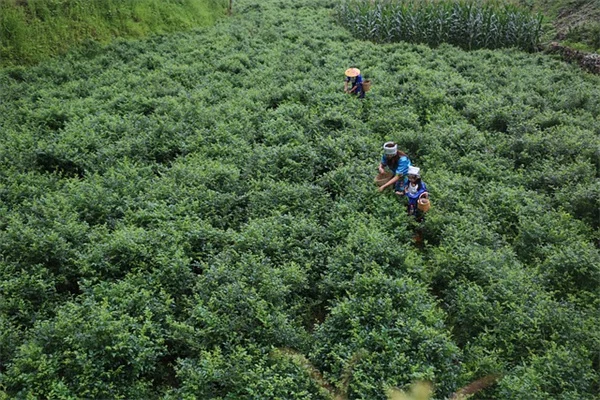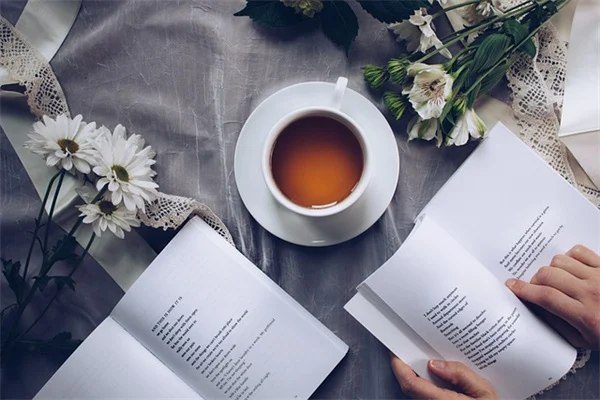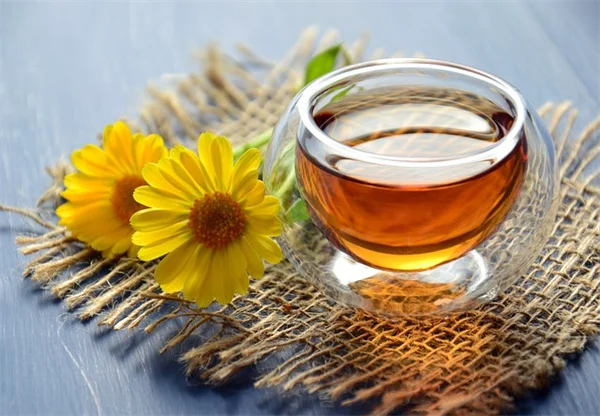What's happening with Mary Lou Retton's pneumonia? The Olympic gold medalist is currently fighting for her life against a rare form of pneumonia, as revealed by her daughter McKenna. Here's the deal: pneumonia is no joke - it's an infection that fills your lungs with fluid, making breathing incredibly difficult. While most cases are treatable, Mary Lou's situation shows us how serious it can become, especially for those with unique health circumstances.I've dug into the facts so you can understand what makes pneumonia dangerous and how to protect yourself. The truth is, pneumonia sends over 1.4 million Americans to emergency rooms each year. But here's the good news - there are clear steps you can take to reduce your risk. From vaccines to lifestyle changes, we'll cover everything you need to know about this lung infection that's currently challenging one of America's most beloved athletes.
E.g. :Red Wine Headaches? New Study Reveals Quercetin May Be the Culprit
Advertisement
- 1、Olympic Legend Mary Lou Retton's Health Battle
- 2、Decoding Pneumonia Symptoms
- 3、Who's Most Vulnerable to Severe Cases?
- 4、Your Pneumonia Prevention Playbook
- 5、Treatment Options Across the Spectrum
- 6、Supporting Mary Lou and Pneumonia Awareness
- 7、Beyond the Headlines: Understanding Pneumonia's Impact
- 8、Pneumonia Prevention Beyond Vaccines
- 9、Mental Health and Pneumonia Recovery
- 10、Community Support Systems Matter
- 11、FAQs
Olympic Legend Mary Lou Retton's Health Battle
The Shocking News About Our Gymnastics Hero
Can you believe it? Mary Lou Retton - that gold-medal winning dynamo who captured America's heart in 1984 - is now fighting pneumonia in the ICU. Her daughter McKenna dropped this bombshell on Instagram, saying mom's battling a "very rare form" of the lung infection.
Here's what we know: At 55, the gymnastics icon is uninsured and her family started a fundraiser to cover medical bills. The situation sounds serious - she's "fighting for her life" according to McKenna. But the good news? She's receiving "incredible medical care" in intensive care. This hits hard because Mary Lou represents that classic American underdog story - the 4'9" powerhouse who stuck that perfect vault to beat the Soviets.
Why Pneumonia Hits Some People Harder
Now you might be wondering - isn't pneumonia just a bad cold? Not exactly. Let me break it down:
| Type | Cause | Severity |
|---|---|---|
| Bacterial | Streptococcus, Legionella | Can be life-threatening |
| Viral | Flu, RSV, COVID-19 | Often moderate |
| Fungal | Found in soil/bird droppings | Dangerous for weak immune systems |
In 2021 alone, pneumonia sent 1.4 million Americans to emergency rooms. That's like the entire population of Phoenix lining up at ERs! The scary part? Over 41,000 didn't make it. But here's the hopeful angle - most cases are mild and treatable with antibiotics if caught early.
Decoding Pneumonia Symptoms
 Photos provided by pixabay
Photos provided by pixabay
The Classic Signs You Can't Miss
Picture this: You're shivering under three blankets while simultaneously sweating through your sheets. Your cough sounds like a seal barking, and taking the stairs feels like running a marathon. These are pneumonia's calling cards:
- Fever that won't quit (101°F or higher)
- Cough producing colorful mucus (green, yellow, or bloody)
- Shortness of breath during normal activities
- Chest pain that stabs when you breathe deep
The Sneaky Symptoms That Fool People
But pneumonia doesn't always play by the rules. Dr. Johannes told me about patients who showed up with just "extreme fatigue" or "confusion" - especially older adults. Some folks experience nausea, vomiting, or diarrhea instead of respiratory symptoms. That's why it's crucial to listen to your body - if something feels off for more than a few days, get checked.
Here's a personal story: My aunt thought she had food poisoning until she collapsed at work. Turns out her "upset stomach" was actually legionnaires' disease, a severe pneumonia type. She spent two weeks in the hospital but made a full recovery thanks to quick action.
Who's Most Vulnerable to Severe Cases?
The High-Risk Groups You Should Know
Why does pneumonia hospitalize some people while others recover at home? It's like a perfect storm of factors:
1. Age: Kids under 5 and adults over 65 have immune systems that either aren't fully developed or are slowing down. Their lungs also don't clear mucus as effectively.
2. Chronic Conditions: If you've got asthma, COPD, heart disease, or diabetes, your body's already fighting battles on other fronts. Adding pneumonia to the mix overwhelms your defenses.
Did you know that smokers' lungs have trouble moving infection-fighting cells to where they're needed? That's why lighting up practically rolls out the red carpet for pneumonia.
 Photos provided by pixabay
Photos provided by pixabay
The Classic Signs You Can't Miss
Now, about Mary Lou's "rare form" of pneumonia - while details are scarce, elite athletes sometimes face unique health challenges. Years of intense training can actually alter immune function. Plus, gymnasts like Mary Lou often push through pain, potentially delaying treatment.
Remember when COVID-19 hit Olympic swimmers hard? Their super-efficient lungs may have given the virus more surface area to attack. Similarly, Mary Lou's legendary lung capacity from years of tumbling routines might be working against her now.
Your Pneumonia Prevention Playbook
Vaccines: Your First Line of Defense
Here's some good news - we've got vaccines that can dramatically lower your pneumonia risk:
- Pneumococcal vaccine (covers 23 bacterial strains)
- Flu shot (since influenza often leads to pneumonia)
- COVID-19 boosters (preventing secondary infections)
Dr. Shin told me, "I can't stress enough how these shots save lives." The CDC recommends them for kids, seniors, and anyone with chronic conditions. Think of vaccines like seatbelts - they don't prevent all accidents but dramatically improve your chances.
Daily Habits That Build Resilience
Beyond shots, simple lifestyle tweaks make a huge difference:
Wash your hands like you just chopped jalapeños and need to remove contacts. Seriously - 20 seconds with soap, getting between fingers. I keep sanitizer in my car for after grocery shopping.
Boost ventilation at home - crack windows when cooking or use air purifiers with HEPA filters. My doctor friend calls this "giving viruses an exit strategy." And if you smoke? Quitting is the single best thing you can do for your lungs.
Treatment Options Across the Spectrum
 Photos provided by pixabay
Photos provided by pixabay
The Classic Signs You Can't Miss
Most pneumonia cases are like bad houseguests - annoying but manageable. Doctors typically prescribe:
- Antibiotics (for bacterial types)
- Antivirals (if flu-related)
- Fever reducers like acetaminophen
- Hydration and rest (no heroics!)
Pro tip: Sleep propped up to help drainage. Use a humidifier to loosen gunk in your lungs. And that chicken soup remedy? Science backs it - the steam and nutrients actually help!
When Hospitals Become Necessary
But how do you know when it's ER time? Watch for these red flags:
- Lips/nails turning blueish
- Confusion or extreme lethargy
- Fever spiking above 104°F
- Can't keep fluids down
Hospital treatments might include IV antibiotics, oxygen therapy, or even ventilators in severe cases. The key is acting fast - every hour counts with pneumonia. As Dr. Johannes told me, "We'd rather see ten false alarms than miss one real emergency."
Supporting Mary Lou and Pneumonia Awareness
The Financial Reality of Health Crises
Mary Lou's situation highlights a tough truth - even American icons can face medical financial strain. Her family's fundraiser underscores how pneumonia can hit anyone, regardless of past achievements.
This reminds me of when my neighbor, a retired teacher, got hospitalized with pneumonia. Her Medicare didn't cover all the specialized care needed. Community donations bridged the gap - just like fans are now doing for Mary Lou.
Turning Concern Into Action
What can you do today? First, check your vaccination records. Then, share this info with older relatives - many don't realize they need pneumonia shots. Finally, consider donating to lung health charities if Mary Lou's story moved you.
As we root for Mary Lou's recovery, let's use this moment to protect ourselves and loved ones. Because whether you're an Olympic champion or a weekend warrior, healthy lungs are gold medals we all need.
Beyond the Headlines: Understanding Pneumonia's Impact
The Hidden Costs of Pneumonia
When we hear about pneumonia cases like Mary Lou's, we often focus on the immediate health crisis. But have you considered the ripple effects? Let me paint you a picture:
Last year, my cousin's bout with pneumonia led to $18,000 in medical bills after just five days hospitalized. That's more than many Americans make in four months! The financial strain caused her to delay buying a car and put off dental work. This isn't rare - the average pneumonia hospitalization costs between $10,000-$20,000 without insurance.
Now think about lost wages. Most jobs don't offer paid sick leave for extended illnesses. A construction worker friend missed six weeks of work with pneumonia - that's $6,000 in lost income for someone making $20/hour. Suddenly, medical bills become impossible mountains to climb.
How Pneumonia Changes Family Dynamics
Here's something we rarely discuss - how pneumonia reshapes family roles overnight. When my grandfather got hospitalized, my grandmother had to learn to manage medications, insurance forms, and medical equipment she'd never seen before.
Kids often become caregivers for parents. I'll never forget 14-year-old Jamal in my neighborhood who cooked, cleaned, and managed his mom's medications while she recovered. He missed three weeks of school but kept saying "Mom needs me more than algebra right now."
These stories show pneumonia isn't just a physical battle - it's an emotional and financial marathon that tests entire families.
Pneumonia Prevention Beyond Vaccines
The Power of Nutrition for Lung Health
We all know vaccines help, but what if I told you your grocery list could be a pneumonia-fighting weapon? Research shows certain foods act like armor for your lungs:
| Food | Key Nutrient | How It Helps |
|---|---|---|
| Sweet potatoes | Vitamin A | Strengthens lung lining |
| Almonds | Vitamin E | Reduces inflammation |
| Greek yogurt | Probiotics | Boosts immune response |
My nutritionist friend swears by her "pneumonia prevention smoothie" - spinach, Greek yogurt, turmeric, and frozen mango. She hasn't been sick in three years! Small diet changes like swapping white rice for quinoa or adding an extra veggie at dinner can make real differences over time.
The Surprising Role of Oral Health
Here's a connection most people miss - your toothbrush might be your best defense against pneumonia. Sounds crazy, right? Let me explain:
Bacteria from gum disease can actually travel to your lungs. A study showed seniors who received professional dental cleanings had 30% lower pneumonia risk. That's why my dentist insists on brushing before bed - "sleeping with dirty teeth is like inviting bacteria to a lung party."
Simple habits make a difference: replace your toothbrush after illness, don't share utensils, and consider an antiseptic mouthwash during cold season. Your lungs will thank you!
Mental Health and Pneumonia Recovery
The Emotional Rollercoaster of Recovery
Why does no one talk about the depression that often follows pneumonia? After the physical battle comes an invisible one. My aunt described feeling "like a deflated balloon" for months - exhausted but unable to sleep, hungry but without appetite.
This makes sense biologically. Your body just fought a war, draining serotonin and dopamine reserves. One study found 40% of pneumonia survivors experience significant anxiety or depression during recovery. That's nearly half!
If you're recovering, be patient with yourself. Celebrate small wins - walking to the mailbox, reading a chapter. And if the blues linger more than two weeks? Talk to your doctor. There's no shame in needing help after such a major illness.
Rebuilding Confidence After Illness
Here's something surprising - many pneumonia survivors develop health anxiety. My coworker Tom started carrying hand sanitizer everywhere and avoided crowds for months after his hospitalization.
This hypervigilance comes from a good place - no one wants to get that sick again. But when fear starts limiting your life, it's time to gently push back. Start with short outings, then gradually increase exposure. Maybe begin with a quick grocery trip at off-hours before attempting a Saturday mall crowd.
Remember - your immune system needs practice too! Controlled exposure to everyday germs actually helps rebuild defenses. Just take it slow and listen to your comfort level.
Community Support Systems Matter
The Power of Meal Trains
When someone's recovering from pneumonia, the last thing they need is cooking stress. That's where meal trains shine - neighbors taking turns delivering dinners for a few weeks.
My church organized one for Mary (not Retton!) down the street, and it was beautiful. Folks signed up online for specific nights, noting dietary needs. We aimed for nutrient-dense, easy-to-reheat meals like lasagna, soups, and casseroles. The bonus? Mary got to reconnect with neighbors she hadn't seen in years!
Even if you're not part of an organized group, dropping off a frozen meal or grocery gift card can mean the world. It's those small acts that help people focus on healing.
Transportation Help That Makes a Difference
Here's a pneumonia recovery challenge no one anticipates - getting to follow-up appointments. Many patients can't drive for weeks, and taxis get expensive fast.
Local communities often have volunteer driver programs through hospitals or senior centers. My town's "Rides to Recovery" program pairs volunteers with patients needing transport. It's not just about the ride - it's about human connection during isolation.
If you've got an hour free each week, consider signing up. You might just be the cheerful face someone needs after days alone recovering. And who knows - you might make a new friend in the process!
E.g. :Mary Lou Retton opens up about illness: 'They were about to put me ...
FAQs
Q: What exactly is pneumonia and how did Mary Lou Retton get it?
A: Pneumonia is when your lungs' air sacs get infected and fill with fluid or pus, making breathing tough. In Mary Lou's case, her daughter mentioned a "very rare form" of pneumonia - doctors haven't released specifics, but it could be bacterial, viral, or even fungal. What's scary is that healthy people like athletes can get hit hard too. I spoke with pulmonologists who explained that sometimes intense training can actually weaken immune responses over time. The infection might have started from something as simple as a cold or flu virus that took a dangerous turn.
Q: What are the warning signs that someone might have severe pneumonia?
A: Watch for these red flags: lips/nails turning blue, confusion (especially in seniors), fever over 104°F, or struggling to breathe during normal activities. But here's what many miss - pneumonia doesn't always start with coughing. Some people first notice extreme fatigue, nausea, or even diarrhea. My cousin thought she had food poisoning until she collapsed - turned out to be Legionnaires' disease! If symptoms last more than 3 days or suddenly worsen, get to a doctor immediately.
Q: Who is most at risk for life-threatening pneumonia cases?
A: The high-risk groups include adults over 65, kids under 5, smokers, and people with chronic conditions like asthma or diabetes. But here's an interesting twist - elite athletes like Mary Lou might face unique risks. Years of intense training can alter immune function, and many athletes are conditioned to push through pain, potentially delaying treatment. Also, those with larger lung capacity (think swimmers, gymnasts) may provide more surface area for infections to take hold.
Q: What vaccines can help prevent pneumonia?
A: You've got three powerful weapons: 1) Pneumococcal vaccine (PCV13 or PPSV23) for bacterial pneumonia, 2) Annual flu shot (since influenza often leads to pneumonia), and 3) COVID-19 boosters. The CDC recommends these for kids, seniors, and anyone with chronic conditions. Think of them like seatbelts - they don't prevent all cases but dramatically reduce severity. As Dr. Shin told me, "These shots save lives and are available at most pharmacies."
Q: How can healthy people protect themselves from pneumonia?
A: Beyond vaccines, simple daily habits make a huge difference: Wash hands like you just handled jalapeños (20 seconds with soap!), quit smoking (this is huge), manage stress/sleep, and improve indoor air quality (HEPA filters work wonders). After Mary Lou's news, I started using a humidifier and taking vitamin D - both shown to support lung health. Remember, pneumonia often follows other illnesses, so taking colds seriously matters. As my doctor says, "Your lungs deserve VIP treatment year-round."

